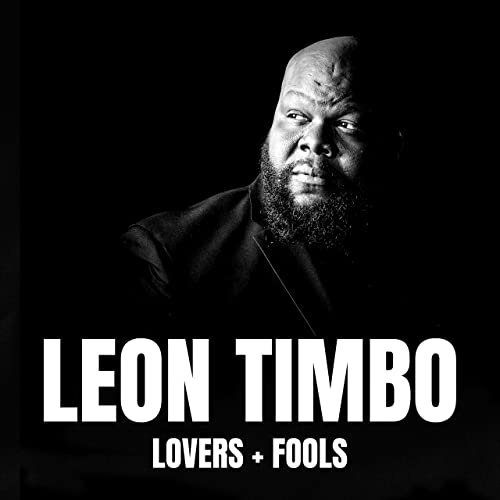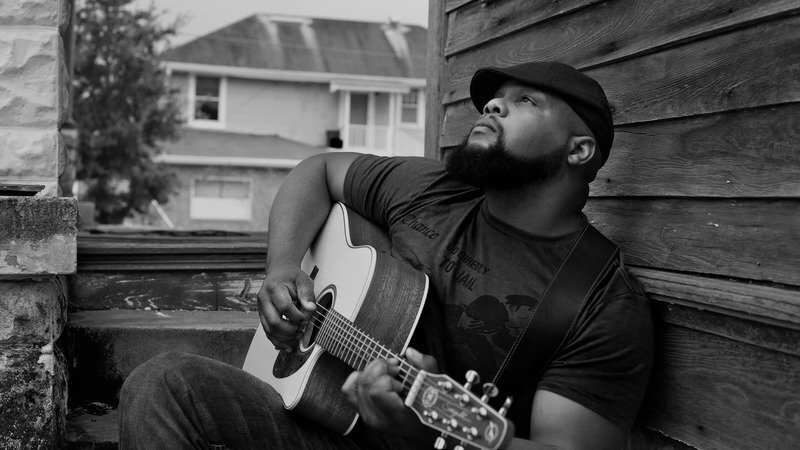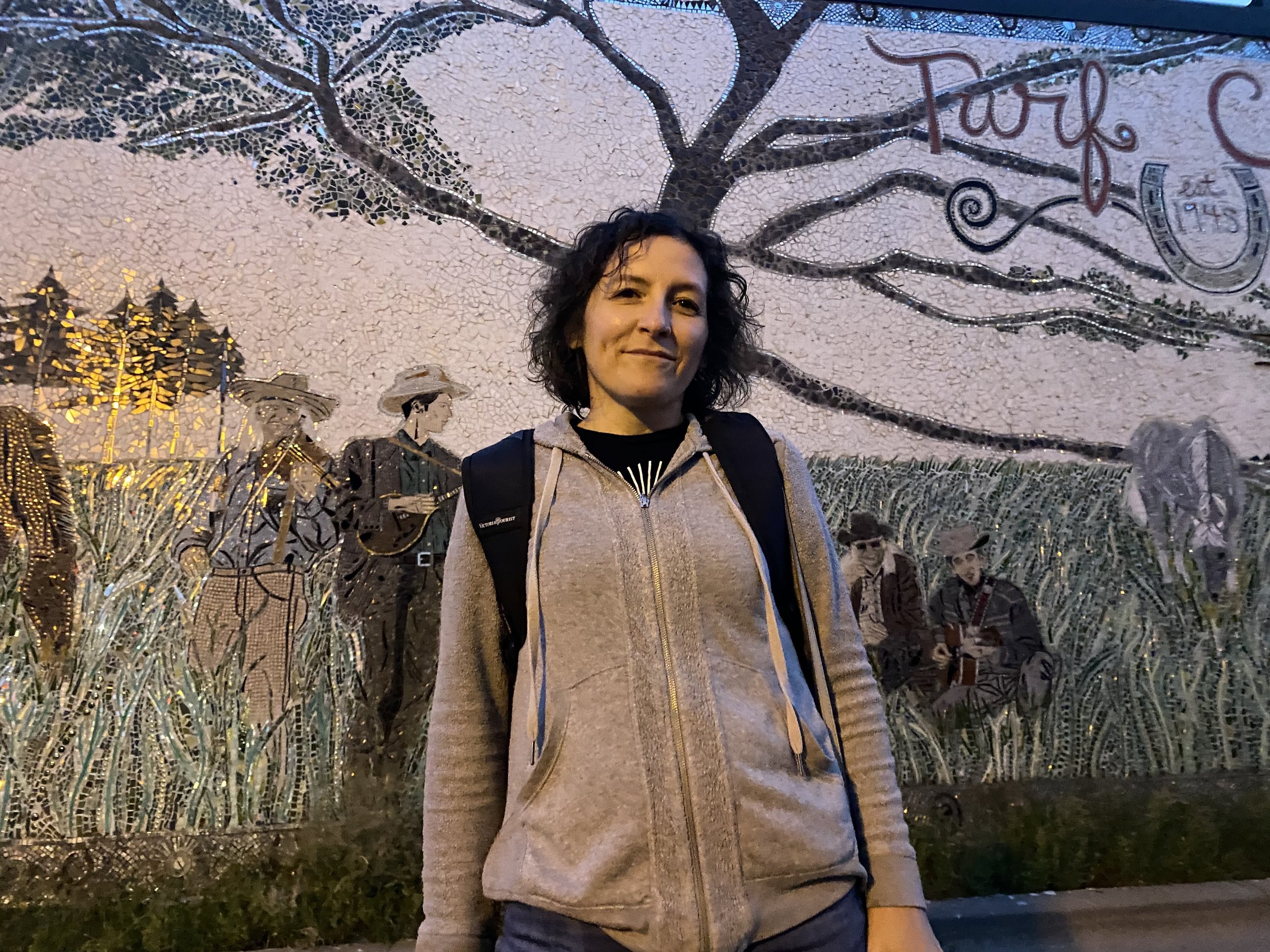Music Review: Leon Timbo, ‘Lovers & Fools’
On his new EP, the versatile roots artist adds country and folk to his already-rich blended sound, broadening the big tent of Americana in the process.
My Adventures in Americana co-founder Jaclyn and I are often asked how we define Americana. It’s a fair question, because the breadth (or narrowness) of the genre varies depending on who you ask. For me, I initially started using the term to mean country music that didn’t sound like mainstream pop country, but the more I thought about it—and the more music I was exposed to—the broader the concept of Americana became (and continues to grow).
Jaclyn and I hit on our fundamental definition while interviewing an artist who asked us about it. Our off-the-cuff answer to her has become our barometer for gauging whether to include music on our site: We think Americana means music with real instruments and real voices that tells a story and has some kind of roots in American music.
I was struck when I saw a similar statement on singer-songwriter Leon Timbo’s Instagram account: “What is Americana? It is any music form birthed in and out of this American experience: blues, country, roots gospel, bluegrass, folk, and rhythm and blues (let that sink in)... ‘Lovers & Fools” is my story that combines all of those experiences into a body of work.”
I get why he added that parenthetical. I have to admit, I’d never thought to put that last genre on the list, and I’m sure I’m not the only one—which poses a challenge for an artist like Timbo, who clearly loves all of the above genres and doesn’t see any contradiction in putting them all together in his music. But his new record won me over to the inclusion of R&B in Americana, and hopefully I’m not the only one.
This record is definitely a bold step toward establishing his Americana (versus strictly R&B) musical identity. Parts of Timbo’s bio read like he’s always been destined for R&B stardom—in 2008, his performance at Bishop T.D. Jakes’ church wowed actor-turned-R&B artist Tyrese so much he had Timbo open for him that same night, and the connection led to a brief record deal with Babyface’s label and working with Quincy Jones.
Of course, being pretty far outside the R&B and pop music world myself, I didn’t know any of this until I heard Timbo’s undeniably country song “Lovers & Fools” off his new EP and started looking into him. I guess Tyrese and I have something in common, because I was instantly struck by this first encounter with Timbo. “Lovers & Fools” starts out as a 100 percent country song with a galloping drum, chugging acoustic guitar and bluegrassy banjo, then unexpectedly breaks for a slow, R&B-tinged bridge, before picking up the pace again. It’s a striking contrast, the most surprising aspect being how well it works. Timbo’s warm, soulful voice fits both styles equally well.
Thoroughly charmed by that unique song, I couldn’t wait to dig into the rest of his EP (which, at eight tracks and over 30 minutes of music, could just as easily be considered an album). The surprises kept coming on this record, which is heavier on the R&B than I expected but also blends elements of folk, pop and soul into a melange that, for me at least, permanently broadens the tent of what constitutes Americana.
Every heartfelt song—some unabashedly sentimental, with dark and heavy themes sprinkled throughout—were written by Timbo (except one cover), and each one tells a story. “Lovers & Fools,” despite being mostly uptempo, gives the outlines of a desperately sad story about a man who’s lost his true love in some traumatic unexplained event—“It took you in an instant / There was nothing I could do”—and can’t get over it. People around him call him a “fool” for not getting over it, for being alone, which lends poignancy to the chorus “We are lovers and fools / Which one are you?” The narrator’s unflagging sadness and devotion to his lost loved one lends a chill to the final line: “I’ll see you soon.”
The next track, “We Were,” is a soaring uptempo ballad saturated in nostalgia, painting warm-hued pictures of a family spending time together after church on Sunday, extolling father-daughter love, and longing for the past “when we were home.” Bringing in strings, jazz-tinged electric guitar and a choral background gives the song more of an R&B gospel sound—appropriate since the narrator’s father is a pastor. TImbo’s emotion-filled vocals give it an autobiographical feel—and that’s confirmed by a voicemail from a family member that plays over the outro, talking about how much the song meant to her.
“Love’s Not Supposed to Hurt,” a sort of folk/R&B hybrid which features gentle acoustic instrumentation and showcases the soft side of Timbo’s voice, is about having to express hard truths about life. In the first verse, a daughter comes to her father with “questions about how love works / and why do people leave without trying first,” plaintively asking “Don’t they know love’s not supposed to hurt?” The next verse is even more heart-wrenching, with a teacher sitting down with a student who could be Timbo himself: “he knew that I was helpless / and he knew the worst / that people would try to take my freedom.” The narrator’s soft protest “America’s supposed to work,” followed by the refrain “Love’s not supposed to hurt,” brings home the point that for many Americans, especially people of color, the relationship with our country is as complicated and painful as a lover’s betrayal.
“Lost” has a slow, smooth R&B tempo, with bongo-like drums, piano and improvisational electric guitar lines. The enigmatic lyrics leave plenty of room for the listener’s interpretation as to what exactly happened to this heartbroken lover and include some of my favorites on the record: “Lost my friend in the middle of a gamble, I played the hand I was supposed to fold…” He talks about trying to get over it and “find a way to get my heart back strong,” but in the end, the refrain helplessly repeats “I’m waiting for you.”
“Give Me Heart” is classic R&B all the way, a slow-burner about the extremely classic theme of being secretly in love with a friend and wishing she’d leave the man she’s with for someone who’s always been there for her. The bittersweet refrain “Look at me / I got you” plays up the fact that he’s got her back but doesn’t have her as a partner, and that she likely doesn’t know what he wants: “I’m realizing it’s easy to miss or misread all my messages,” he agonizes. The song gives Timbo a chance to feature the full range of his voice, from soft falsetto crooning to big muscular vocal runs.
From the title, I assumed the next track, “Fall Apart,” would be about another failed relationship falling apart. Instead, it’s about someone who needs a safe place to be vulnerable and express their pain: “I don’t want anything but to see your heart have the freedom to fall apart.” The narrator wants to provide that space: “Maybe here you can release your fears,” he sings soothingly, adding, “crying’s just a journey back home.” Mainly backed by piano and acoustic guitar, with a soft fiddle and background vocals coming in gradually, it’s got a universality that’s hard to categorize in terms of genre. The theme is universal too; so many times in life I’ve told a friend who’s bottling up hurt some version of “Don’t be afraid to say you’re not okay.”
You can probably see the source of Timbo’s inspiration for “Fall Apart” in the very next song, a tender, folky acoustic cover of James Taylor’s “You’ve Got a Friend,” which expresses many of the same sentiments. Timbo lists Taylor as one of his biggest musical influences, and this cover is a lovingly rendered tribute that shows his admiration.
The EP ends on “With a Kiss.” Simultaneously bouncy and mellow, this song completely defies genre—it contains moments that sound country (fiddle and slidey electric guitar) and sort of 60s-70s folk-pop (tambourine and vibraphone) but comes together to create a sound all its own. There’s something innocent about the instrumentation, complemented by lyrics that bemoan “fancy computers and such calculating relationships.” That wouldn’t work for this old-fashioned narrator: “That’s not how I fell—I fell in love with a kiss.”
The record ends on that hopelessly romantic line, a fitting summation of a record that’s heartbreaking in places but, even in the face of adversity, has an ultimately optimistic feel. In a way, that could describe Timbo’s mission to introduce his complex blend of sounds to the country/Americana scene—and he’s likely winning quite a few hearts and minds with this album as his calling card.
Carol Roth is a full-time marketing copywriter and the main music journalist and social media publicist for Adventures in Americana. In addition to studying the guitar and songwriting, Carol’s additional creative side hustle is writing self-proclaimed “trashy” novels under the pseudonym @taberkeley!




